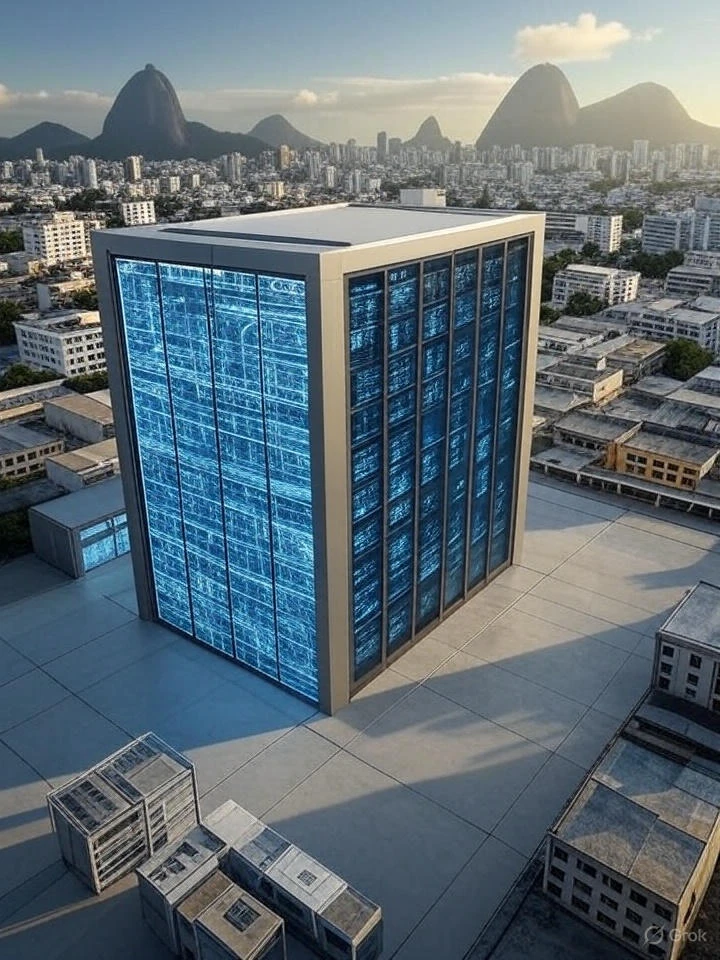
Brazil is positioning itself as a serious contender in the global data center race. With a $65 billion artificial intelligence hub now underway in Rio de Janeiro and sweeping tax incentives on the table, the country is betting big on becoming a digital infrastructure powerhouse.
The ambitious “Rio AI City” project, launched last week, aims to deliver a staggering 3 gigawatts of data center capacity by 2032. The hub will be built in Barra da Tijuca, a rapidly developing district in Rio, and is backed by a memorandum of understanding between the city and federal institutions including the National Bank for Economic and Social Development (BNDES).
At the signing ceremony, Rio Mayor Eduardo Paes pointed to a favorable blend of conditions: clean and abundant energy, fiber optic infrastructure, and—perhaps most importantly—a deep pool of skilled human capital. “We have the support of the BNDES, clean energy, underground cables, and talent. Everything we need to lead,” he said.
The timing is no coincidence. Brazil is expected to attract demand for 10 gigawatts of data center capacity in the next decade. That’s according to Igor Marchesini, special adviser to the Ministry of Finance, who emphasized the country’s unique competitive edge: a clean energy matrix that avoids the grid pressure and public pushback seen in markets like Ireland and Virginia.
“Our electricity mix is already clean,” Marchesini noted at the recent Energy Summit 2025. “We won’t see rising power bills or environmental damage—and that’s a big advantage.”
Indeed, Brazil has already exceeded its goal of reaching 84% renewable electricity by 2030. Solar and wind capacity are both on track to soar by the end of the decade, reinforcing the country’s green energy credentials.
The government is also finalizing a major tax incentive plan. A provisional measure offering a 52% tax reduction for data centers is ready to go and awaiting approval by Congress. The goal: drive investment into underdeveloped regions like the Northeast, where surplus energy capacity can meet surging global demand and help bridge regional inequalities.
BNDES is putting money behind the vision too, preparing a dedicated investment fund for data centers and AI projects. Initial funding will range between $90 million and $180 million, with a target of up to $900 million once private capital is factored in. Since 2023, the bank has already committed over $300 million to the sector.
Still, industry leaders warn that Brazil’s potential hinges on a careful regulatory balance. Alessandro Lombardi, CEO of Elea Data Centers, said that while investor interest is high, overregulation could dampen momentum. “We can’t have three different bills floating around—we need one clear framework,” he said.
Meanwhile, Brazil’s national AI strategy is beginning to take shape. With over $4 billion in planned investments through 2028, the government is laying the groundwork for long-term leadership in artificial intelligence.
“AI is not just about innovation—it’s about national sovereignty,” said Luciana Santos, Minister of Science, Technology, and Innovation. “It’s a growth engine, and we want to make sure it delivers social equity too.”
Brazil’s rare combination of renewable energy strength, political will, and investor appetite could help it become Latin America’s leading technology hub. But to seize this opportunity, the country will need to keep regulation smart, support infrastructure buildout, and move quickly—before the global data center gold rush leaves it behind.
Can you afford not to be present in Brazil? Talk to us, we help you to be successful in Brazil.